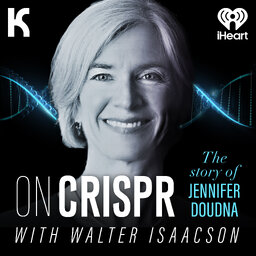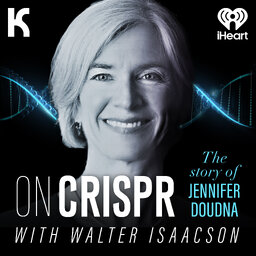In this final episode of our series, host Evan Ratliff and biographer Walter Isaacson discuss Benjamin Franklin's remarkable late-in-life achievements-- from his last anonymous essay, to the way he empowered George Washington, to his evolution on slavery, to the beautiful way Philadelphia mourned its favorite son... oh, and they discuss Ben Franklin's favorite magic trick, too!
ON CRISPR: The Story of Jennifer Doudna with Walter Isaacson
A single scientific breakthrough changed the future of humanity, setting off the third great revolut…Social links
Follow podcast
Recent clips

ON CRISPR Episode 5: The Conversation
59:00

ON CRISPR Episode 4: Franken Monsters
36:47

ON CRISPR Episode 3: Patent Wars
27:19
 ON CRISPR: The Story of Jennifer Doudna with Walter Isaacson
ON CRISPR: The Story of Jennifer Doudna with Walter Isaacson